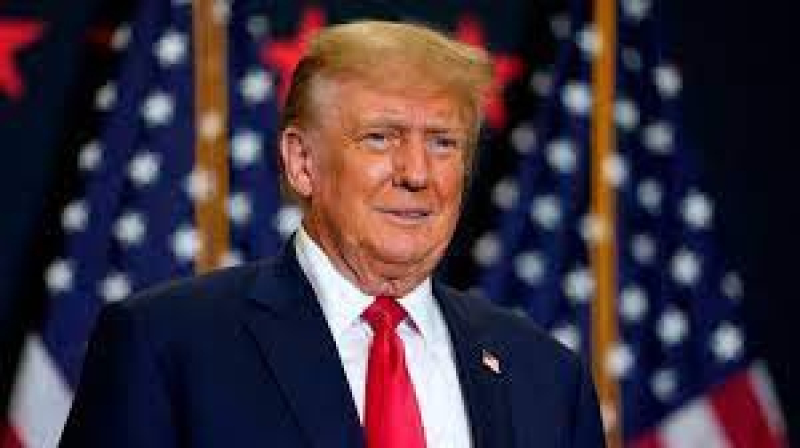- France to Break Away from UK & US in Recognising Palestine as Nation State |
- Storm Alert Issued for Dhaka and Eight Other Regions |
- 58 killed in deadliest US strike on Yemen |
- BNP Opposes Reforms to Constitution’s Core Principles |
- Time to Repair Bangladesh–Pakistan Ties |
As states dump Trump from primary ballots -- can he run in 2024

(BSS/AFP) - With multiple US states hearingchallenges to Donald Trump's right to run in the 2024 election, his supportersclaim his enemies are tearing up democracy to prevent his return to the WhiteHouse.
Rulings in Colorado and Maine banning the ex-president from their primarynominating contests under the Constitution's "insurrection clause" set off apolitical earthquake that could upend the campaign.
But do they pose a genuine threat to Trump's presidential ambitions?
- Why Trump might be ineligible -
The US House of Representatives impeached the Republican tycoon forinciting insurrection after he called on his supporters to march on the USCapitol ahead of a deadly riot that delayed the certification of the 2020election.
A large, bipartisan majority of the Senate agreed with the lower chamber'sfinding, but the tally fell short of the two-thirds of members required for aconviction, which would have barred Trump from seeking office again.
Federal prosecutors have since charged Trump with conspiracy over theviolence, and he is scheduled for trial in March.
Meanwhile, activists have brought court challenges nationwide to stop hisname appearing on ballots for state primaries under the 14th Amendment, whichbars people from office if they have taken an oath to defend the Constitutionbut subsequently "engage in insurrection."
- Where is Trump barred from running? -
On December 19, the Colorado Supreme Court ruled that Trump was ineligiblefor the state's primary under the 14th Amendment's "insurrection clause."
Maine -- where the secretary of state, currently a Democrat, makes theinitial eligibility determination -- followed suit on Thursday.
Related challenges have been filed nationwide, with decisions pending in 14states, according to national security website Lawfare's onlinedisqualification tracker.
- What happens next? -
Both states put their bans on hold while the legal process plays out --meaning Trump will almost certainly appear on both ballots for their March 5primaries.
Grassroots Republicans have challenged the ruling in Colorado and the Trumpcampaign has indicated that it intends to appeal in both cases.
The Maine decision would go to the state's Superior Court first, whileColorado's ruling has already been through the state system and would beelevated directly to the US Supreme Court.
- What can the US Supreme Court do? -
The strongly conservative-leaning high court -- which includes three Trumpappointees -- can decline to review the Colorado case, meaning the Trump banwould stand.
In reality, most analysts believe that Maine joining with Colorado removesany doubt that the justices will act.
They would determine whether or not section three of the 14th Amendment --the insurrection clause -- applies to a former president.
The court could also rule on whether the ban is automatic or would requirean act of Congress, and whether the 2021 storming of the Capitol and Trump'srole in it indeed qualify as insurrection.
- The effect of the bans -
Even if the Colorado and Maine bans stand, front-running Trump is expectedto be able to secure the Republican nomination comfortably without thosestates, so his path to the White House would not necessarily be impeded.
But an adverse Supreme Court ruling that is binding on lower courtsnationwide -- rather than a narrow procedural ruling affecting only Colorado --could torpedo the ex-president's primary challenge.
He would then have to decide whether to run for president as a third-partycandidate.
But even if the high court doesn't weigh in on the state level rulings andthe damage is limited to Colorado and Maine, the justices could leave the dooropen to challenges to Trump's eligibility for the general election.
So he could well find himself barred from challenging President Joe Bidenin November, even if he wins the Republican nomination.
- Timetable -
The gears of the US justice system grind notoriously slowly -- particularlyat the top.
The Supreme Court has not indicated whether it intends to take up theColorado appeal, nor how long it would take to rule on Trump's eligibility ifit did. Trump's opponents have stressed the importance of an urgent decision.
The court can act quickly when required: Its ruling ending Florida's votecount in the 2000 election -- handing victory to George W. Bush -- took lessthan a month.

